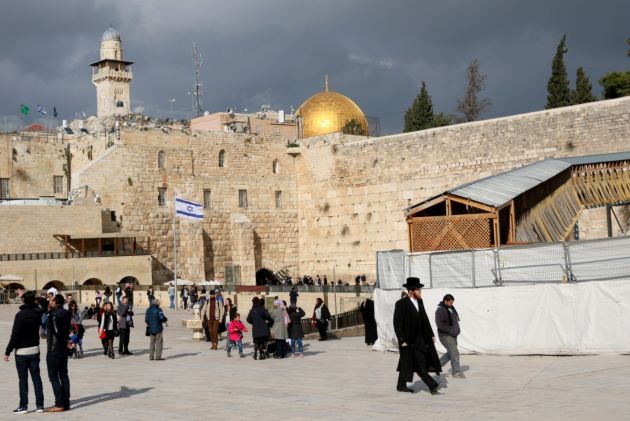Future of Jerusalem must be a shared one says World Council of Churches' Tveit

World Council of Churches general secretary Rev. Olav Fykse Tveit has told a gathering organized by a leading Muslim cleric in Cairo that, "The future of Jerusalem must be a shared one."
The WCC head addressed the status of Jerusalem at the international "World Conference in Support of Jerusalem" on Jan. 17-18 January in the Egyptian capital.
The meeting was organized by the Grand Imam of Al-Azhar, Sheikh al-Tayyib, under the auspices of Egyptian President Abdel Fatah al-Sisi.
Speaking on the theme of Jerusalem's shared future Tveit, "It cannot be the exclusive possession of one faith over against the others, or of one people over against the other. Jerusalem is, and must continue to be, a city of three religions and two peoples."
He noted, "Jerusalem is regarded as a holy city and loved, genuinely and deeply loved, by all three Abrahamic faiths – Jews, Christians and Muslims."
Tveit said. "That love and profound attachment must be respected and affirmed in any solution that might be envisaged, if it is to be viable."
JESUS WEPT OVER JERUSALEM
He said that the Bible's New Testament relates how Jesus wept over the city of Jerusalem with love and longing.
"If you, even you, had only recognized on this day the things that make for peace!" Tveit reflected quoting the apostle Luke 19:42.
"Following Jesus' word and example means to speak truth, to seek justice, and to be peacemakers in the world's conflicts and controversies," he said.
In speaking for a shared Jerusalem Tveit said it the complexity of Jerusalem's history and culture must be considered.
"History shows that the involvement in this region of these three religions has not brought just peace for all. That, unfortunately, is still true today."
He asserted, "As believers in one almighty God, we should explore together what it means to express the love of God in this conflict in which the three monotheistic religions and their communities are involved and affected.
"There will be no peace in Jerusalem unless all three religions are respected and involved in the solution...Let us together be contributors to a just peace, not to a perpetual conflict."
The conference gathers prominent national, regional and international representatives such as Palestinian President Mahmoud Abbas; the Pope of Alexandria and Patriarch of the Coptic Orthodox Church Tawadros II; Arab Parliament chief Meshaal bin Fahm al-Salmi; the President of the Kuwait National Assembly Marzouq Al-Ghanim; and Ahmed Aboul Gheit, secretary general of the Arab League.
